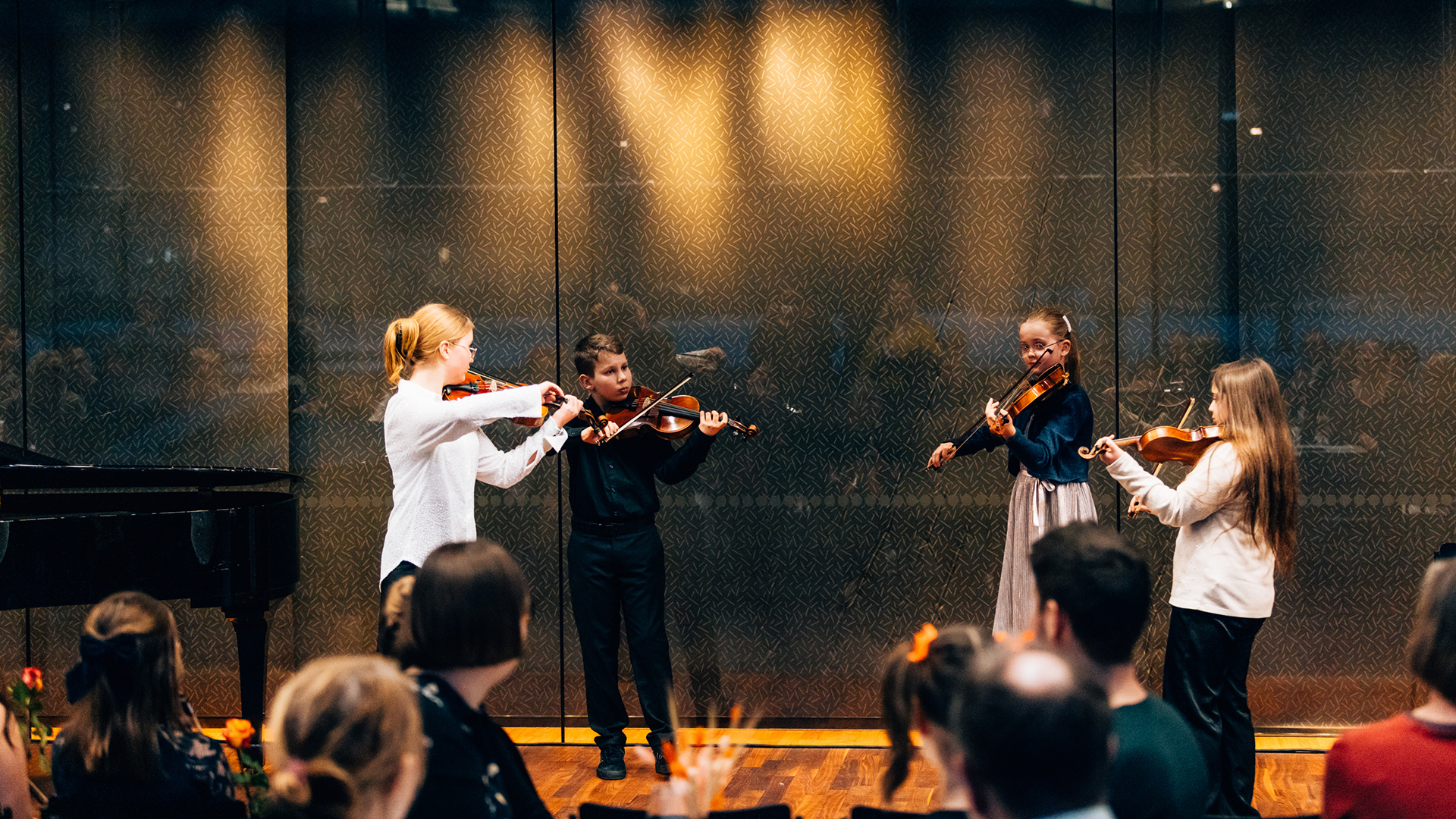HPO has invited music schools in Helsinki to perform in the main foyer of the Helsinki Music Centre before its concerts.
The Helsinki Philharmonic Orchestra has invited music schools in Helsinki to perform in the main foyer of the Helsinki Music Centre before its concerts. Welcome!
Joseph Haydn: The Creation
The premiere of The Creation/Die Schöpfung by Joseph Haydn (1732–1809) in Vienna in 1798 was a roaring success. Though in principle intended for the audience of nobles and high-ranking officials gathered at the Schwarzenberg Palace, hundreds of curious lesser folk lined the walls, hoping to catch a note or two of the new oratorio by the Austrian composer who, after 30 years as Kapellmeister at the court in Esterházy had taken London by storm.
Whereas in Vienna, musical life tended to centre round Church and Empire, in London, concerts had become a form of public entertainment drawing its income from various sources. It was therefore with great pleasure that Haydn accepted the invitation of the impresario Johann Peter Solomon, who, on hearing that Haydn was now unemployed, had penned a personal letter suggesting a visit to London.
English audiences were clearly enamoured by music of the German-speaking regions.
English audiences were clearly enamoured by music of the German-speaking regions. It was in England that Georg Frideric Handel (1685–1759) had risen to fame and glory, and he had been bringing German colleagues to enrich the London opera scene ever since the 1720s. Works by him continued to be regarded as part of the English heritage, and Haydn was greatly impressed by the live performances he heard of The Messiah and Israel in Egypt. He was thrilled by the giant orchestras, the tone painting of individual words and phrases, the colourful harmonies, brilliant solos and strong religious charge. “Handel is the greatest of composers,” he cried, and happily turned his attention in a new direction from the symphonies and string quartets that had previously been his bread and butter.
Leaving London for the last time in 1795, Haydn had with him the text by an anonymous author of The Creation of the World found among Handel’s effects. This text drew on three sources: the biblical story of creation and psalms, and the novel Paradise Lost by John Milton. Haydn realised that the text had potential and asked Baron Swieten, who worked at the Imperial Library in Vienna, to write a German libretto. This he did, and added some poetry of his own.
In the first two parts of Haydn’s Creation, the Archangels Gabriel, Uriel and Raphael tell the biblical story of creation, spiced with Haydnish humour.
In the first two parts of Haydn’s Creation, the Archangels Gabriel, Uriel and Raphael tell the biblical story of creation, spiced with Haydnish humour. The third part is about Adam and Eve, which Haydn ends on a blissful note with never a mention of The Fall apart from a few ominous hints from Uriel. The oratorio was performed 40 times in Vienna alone during Haydn’s lifetime; only the Catholic Church prohibited its performance, saying it was too jolly. In 1800, Haydn’s Creation was the first large-scale work ever to be sung in one of two languages: English and German.

